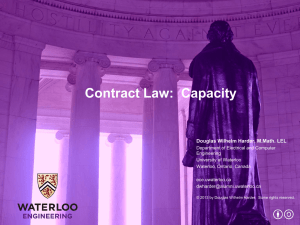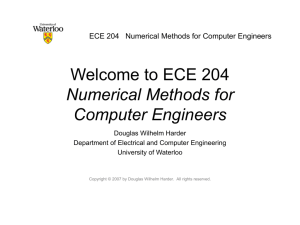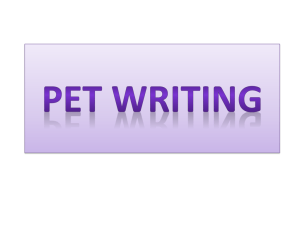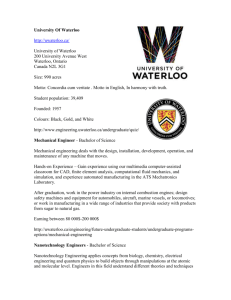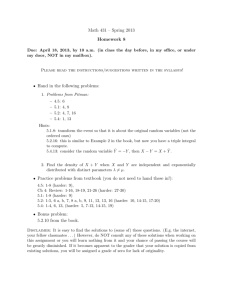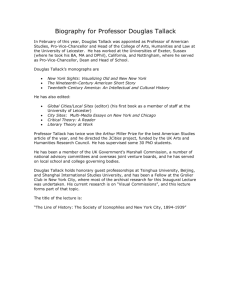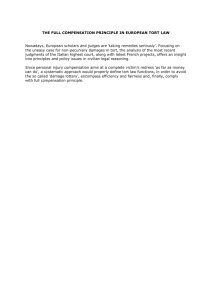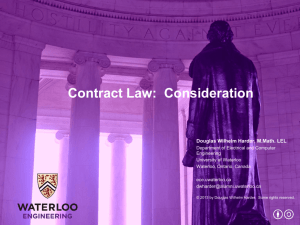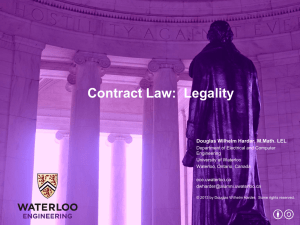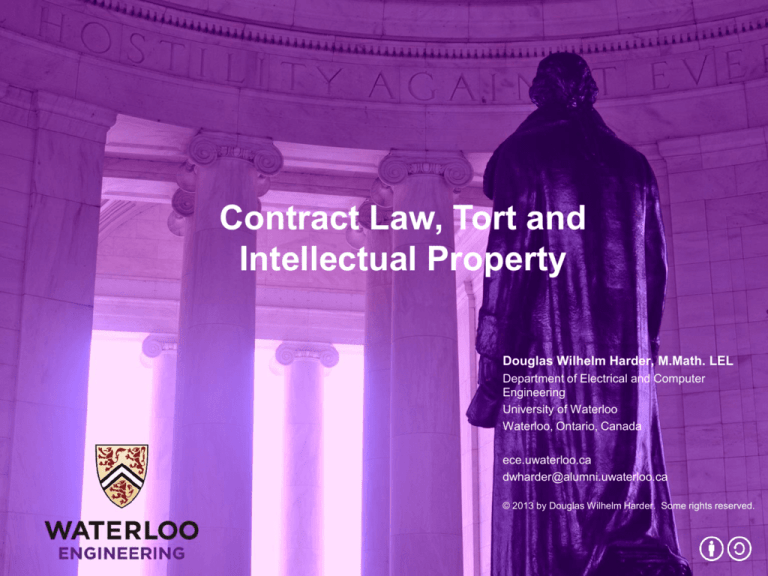
Contract Law, Tort and
Intellectual Property
Douglas Wilhelm Harder, M.Math. LEL
Department of Electrical and Computer
Engineering
University of Waterloo
Waterloo, Ontario, Canada
ece.uwaterloo.ca
dwharder@alumni.uwaterloo.ca
© 2013 by Douglas Wilhelm Harder. Some rights reserved.
Forms of Business
Outline
An introduction to the engineering profession, including:
– Standards and safety
– Law: Charter of Rights and Freedoms, contracts, torts, negligent
malpractice, forms of carrying on business
– Intellectual property (patents, trade marks, copyrights and
industrial designs)
– Professional practice
• Professional Engineers Act
• Professional misconduct and sexual harassment
– Alternative dispute resolution
– Labour Relations and Employment Law
– Environmental Law
2
Forms of Business
Introduction
The balance of the course will look at common and
statute law as it applies directly to the practice of
professional engineering:
– Contract law
– Tort
– Intellectual property
3
Forms of Business
Introduction
In each case, we will see that there are aspects of
statute law and common-law precedence that must be
understood to properly understand how one is expected
to abide by law
– Recall: simply following statutes (acts of either the federal or
provincial parliaments) is not sufficient to understanding all
aspects of law
4
Forms of Business
David Hume
Recall that David Hume gave three fundamental laws of
justice:
1. Stability of possession
2. Transference of possessions by consent
3. Performance of promises
This contrast’s with John Rawl’s principles of justice:
1. The principle of equal liberty
2. The difference principle
5
Forms of Business
Promises and Property
Never-the-less, the concepts of promises and property
are of significant interest to professional engineers
The balance of the course will look at how these are
embodied in Canadian law:
– A contract is a legally enforceable promise
– Causing unintentional harm to another in the practice of
professional engineering is dealt with through tort law
– Intellectual property
6
Forms of Business
References
[1]
[2]
[3]
D.L. Marston, Law for Professional Engineers, 4th Ed., McGraw Hill, 2008.
Julie Vale, ECE 290 Course Notes, 2011.
Wikipedia, http://www.wikipedia.org/
These course slides are provided for the ECE 290 class. The material in it reflects
Douglas Harder’s best judgment in light of the information available to him at the
time of preparation. Any reliance on these course slides by any party for any other
purpose are the responsibility of such parties. Douglas W. Harder accepts no
responsibility for damages, if any, suffered by any party as a result of decisions
made or actions based on these course slides for any other purpose than that for
which it was intended.
7

